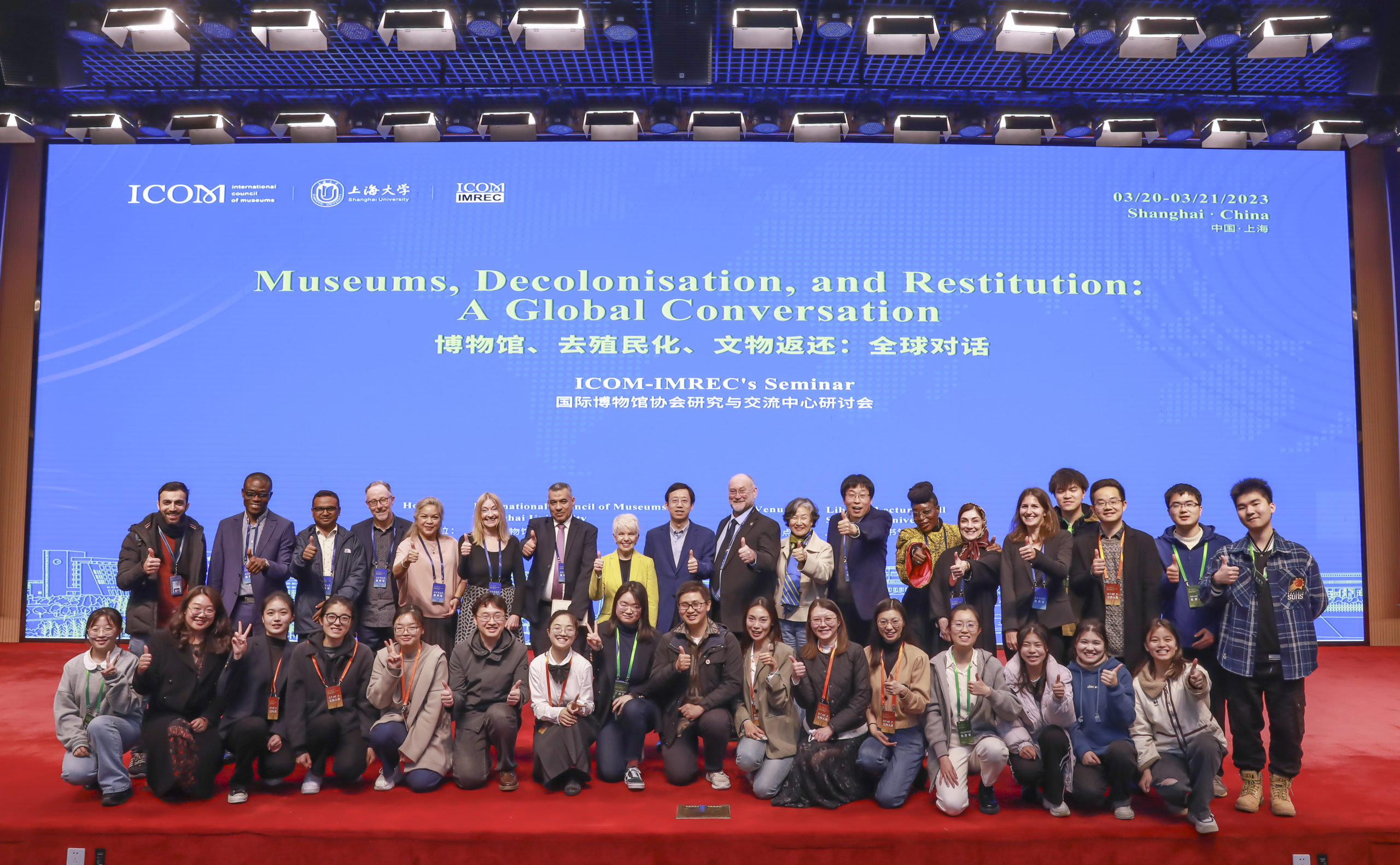ICOM-IMREC

The ICOM International Museum Research and Exchange Centre (ICOM-IMREC) is an international research and exchange platform concerning the museum field and its related areas.
The idea was born after ICOM General Conference, Kyoto 2019, between ICOM and the Shanghai University in China, to implement Resolution 2 of the General Assembly to integrate Asia into the ICOM Community.
It is a partnership created to encourage museums all over the world to engage in a more diverse, inclusive, and democratic cultural dialogue and collaboration among ICOM and the global museum community.
ICOM-IMREC also provides research and exchange knowledge opportunities for ICOM members from all around the world, especially those young museum leaders from the emerging countries.
ICOM-IMREC’s objective are, in accordance with ICOM’s missions:
- to stimulate a global think tank and an international network;
- to address critical theoretical and practical issues that the international museum community is facing;
- to promote cross-geographical and interdisciplinary collaborations for scientific research on current and emerging issues commonly shared by the museum community;
- to publish data analysis and research reports.
SEMINAR: Museums, decolonisation and restitution: A global conversation
On the 20th and 21st of March 2023 ICOM-IMREC will organize a hybrid seminar on “Museums, decolonisation and restitution: A global conversation”.
The seminar will be hosted by the Shanghai University, and it will be accessible to all via a streaming platform.
Day 1 will focus on the concept of decolonisation, touching on the museum paradigm and its decolonisation process, exploring the various ways in which the museum can be reimagined and to which extent. Processes of decolonisation in the context of the intellectual infrastructure of museums and museum practice through language, collections, workforce will be analysed. The session will conclude with the presentation of the working title ‘Decolonisation: difficult histories and national identity’.
Day 2 will investigate the question of restitution and its different impacts on communities. Restitution law and policy and innovation will be discussed and, to end the session, restitution case studies will be presented by different speakers.
More information on the seminar program and access to the live streaming platform here.
Targeted Research Call on Public Funding for Museums
Earlier this year, the Academic and Programming Board of ICOM-IMREC selected the winning proposal for the Targeted Research Call on Public Funding for Museums. The International Research Alliance on Public Funding for Museums (IRAPFM), led by the University of Québec at Montreal (UQAM) was the successful applicant. UQAM (Pr. Yves Bergeron, Pr. Lisa Baillargeon and Me Michèle Rivet,C.M.) is joined by the Musée national des beaux-arts du Québec in Québec, Canada (Me Marc Lajoie), Te Herenga Waka Victoria University of Wellington in New Zealand (Pr. Conal McCarthy), the Universitat de Barcelona in Spain (Pr. Xavier Roigè) and the Universidade Federal Do Est Ado do Rio de Janeiro, Brazil (Dra Luciana M. de Carvalho). Additional researchers from India (Pr. Ambika Patel) and South Africa (Mrs. Catherine Snel) will also be involved.
The IRAPFM project consists of a statistical and a qualitative survey. First, a statistical survey will be sent to all ICOM’s National Committees and the corresponding museums’ supervising ministries in the coming weeks. We invite all ICOM’s National Committees to complete this important survey upon reception.
Second, a qualitative survey will be conducted among various museums across the world, selected by IRAPFM, as representative of their respective geographical area. This survey aims to highlight adaptative, exemplary or innovative funding practices. The two surveys will allow for a better identification and understanding of variations in public funding for museums and their effects worldwide. They will also enable the development of strategies and recommendations for museums, including new business models.
The project will be carried out from July 1st, 2023 to June 30, 2024 with the final report expected by September 1, 2024. The results will then be disseminated via a series of webinars and a publication.
For further information regarding the IRAPFM project, you can contact Heidi Weber, project coordinator, at : museums.funding@gmail.com